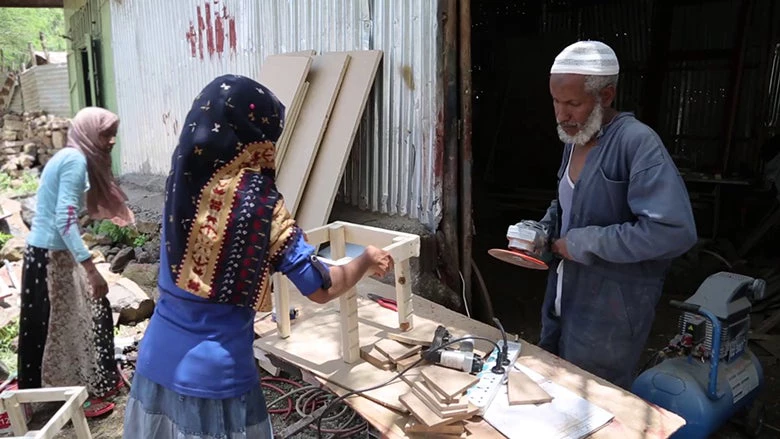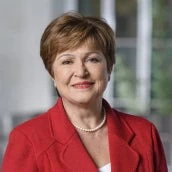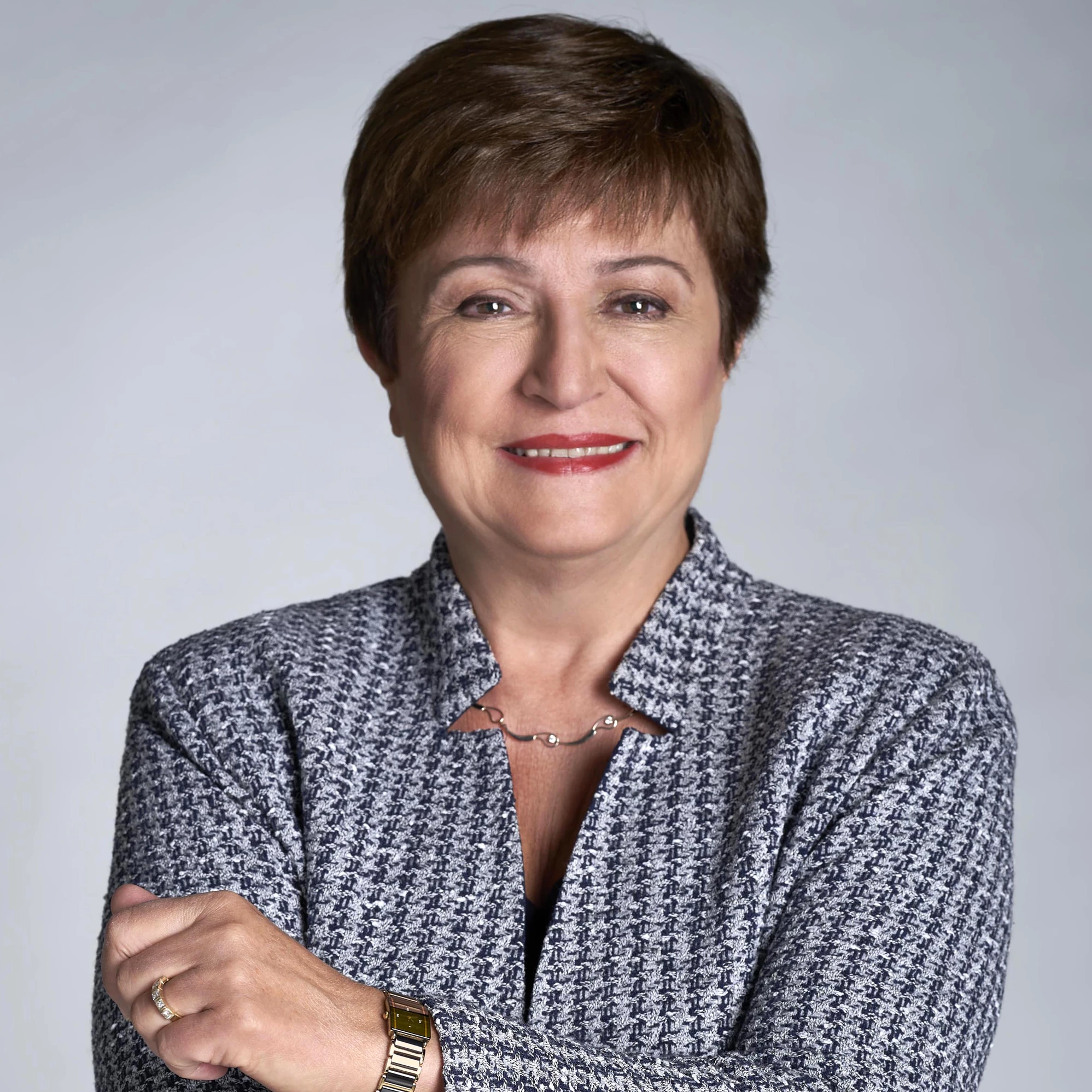 Ahmedin Ibrahim, Eritrean refugee and entrepreneur, and his daughters build furniture in Shire, Ethiopia. © World Bank
Ahmedin Ibrahim, Eritrean refugee and entrepreneur, and his daughters build furniture in Shire, Ethiopia. © World Bank
This year, World Refugee Day finds me in Addis Ababa with representatives from more than 50 governments to review the work of the International Development Association (IDA), the arm of the World Bank Group that provides financing to the poorest countries, and discuss priorities for the years ahead. Under its current program, IDA is providing $2 billion to 14 low-income countries which together are hosting 6.4 million refugees, including in Ethiopia.
Ethiopia is among the countries that is taking major steps forward. Here, for example, we have supported the government in adopting a new legal framework for refugees which will allow them to gradually move out of camps, find jobs, and access education and health services. This is no small measure for the more than 900,000 refugees who are hosted along Ethiopia’s borders with Somalia, Eritrea, Sudan, and South Sudan. It is the difference between having a chance to restart their lives or be condemned to dependency and destitution.
The Ethiopian government is showing admirable foresight in this effort and we are proud to provide support through a $202 million project to create economic opportunities for refugees and host communities.
As Eritrean refugee and entrepreneur Ahmedin Ibrahim told us recently, “It is better to earn a living by yourself than to expect handouts from others.” Ibrahim left the Adi Harush Refugee Camp and now lives in Shire, Ethiopia where he is teaching his daughters to make furniture and stand on their own.
And Ethiopia is not alone. Uganda is hosting nearly 1.2 million refugees and has provided large numbers of them with a tract of land, so they can sustain themselves. Turkey has encouraged Syrian entrepreneurs to start businesses and more than 8,000 companies have been created in the process. Chad is looking at ways to ensure more consistency between its nascent social safety net and the humanitarian system. Pakistan has just allowed refugees to open bank accounts.
The wider context for these positive steps, however is a rising number of refugees and Internally Displaced Persons (IDPs) who are fleeing conflict and persecution. Across the world today, there are about 29.4 million refugees and asylum seekers, more than the entire population of Australia. These are not economic migrants looking for a better job or a better life, but people who have abandoned everything to seek safety for themselves and their loved ones, often at the cost of living in destitution.
And contrary to some perceptions, nearly nine out of ten refugees are in developing countries, often just across the border from their homeland. In fact, because most refugees come from places that have been at war for long periods and because most of them move to a neighboring country, it is the same 12 to 15 countries that have been hosting more than two-thirds of all refugees every year since the end of the Cold War.
We cannot fully imagine the immense suffering faced by these men, women and children as they move from war zones to safety, but we can and must do all we can to help them. With the number of refugees on the rise, the system is under stress. Countries and communities that host refugees find themselves having to absorb large numbers of newcomers, often in lagging regions where poverty is already high. And the cost of sustaining refugees while they are in exile is enormous.
Last December, the international community adopted the Global Compact on Refugees that aims to provide a better international response. That means helping refugees to become self-reliant, supporting host communities to tackle their own development challenges, and encouraging countries around the world to share the responsibility of upholding the international refugee protection system.
We at the World Bank are determined to play our role in this collective endeavor, including by financing countries’ efforts to provide jobs and services for refugees and host communities. In doing so, we need to pay particular attention to those most at risk of exclusion – people with disabilities, women and girls. This is vital for refugees, vital for host communities and vital if we are to stem chaotic population movements across borders.
In 2016, the World Bank launched the Global Concessional Financing Facility, together with the United Nations and the Islamic Development Bank, to provide concessional funding to middle-income countries that host large numbers of refugees. To date, over $500 million in grants provided by nine countries and the European Commission have been approved for Jordan, Lebanon, and Colombia. In the process, the World Bank is also working closely with the UN High Commissioner for Refugees to ensure the best possible complementarity between refugee protection, humanitarian relief, and development aid.
To further strengthen our interventions, we are making support for refugees and host communities a key pillar of our upcoming strategy for Fragility, Conflict and Violence. You can read the strategy concept note here and we encourage you to contribute your ideas.
At the World Bank, we understand the urgent need to address what has become the most significant forced displacement crisis since World War II. On World Refugee Day, we acknowledge the losses, the hopes, the ambitions of the millions of men, women and children who have been forced from their homes into foreign lands.
We hope you will join us in our endeavor and take a moment to acknowledge the refugees in your own country or community and think about the circumstances that may have led them to where they are. And we ask you to speak up for refugees and for those who host them, so we can collectively promote local, national and global efforts to make their lives better.



Join the Conversation